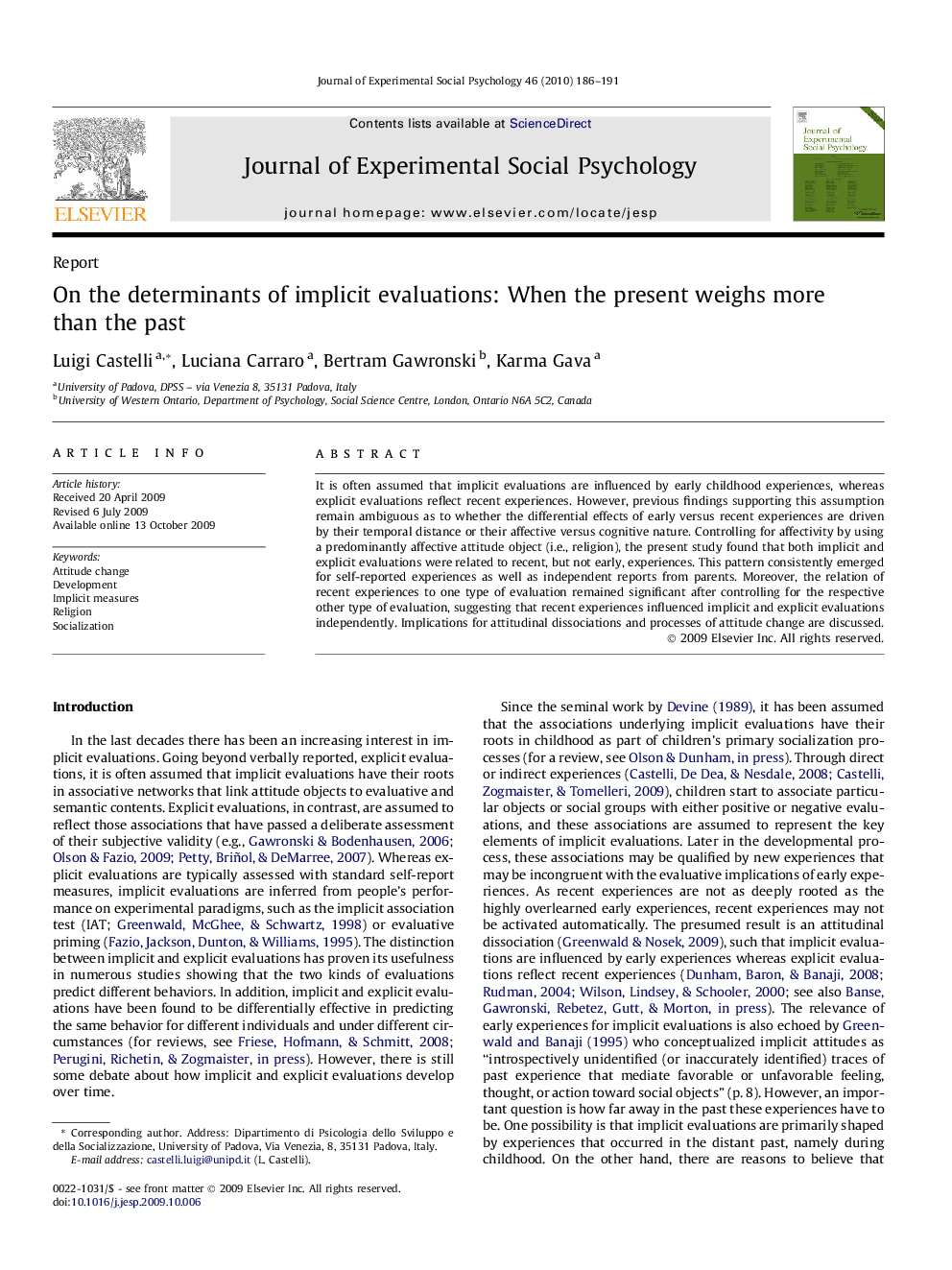| Article ID | Journal | Published Year | Pages | File Type |
|---|---|---|---|---|
| 947895 | Journal of Experimental Social Psychology | 2010 | 6 Pages |
It is often assumed that implicit evaluations are influenced by early childhood experiences, whereas explicit evaluations reflect recent experiences. However, previous findings supporting this assumption remain ambiguous as to whether the differential effects of early versus recent experiences are driven by their temporal distance or their affective versus cognitive nature. Controlling for affectivity by using a predominantly affective attitude object (i.e., religion), the present study found that both implicit and explicit evaluations were related to recent, but not early, experiences. This pattern consistently emerged for self-reported experiences as well as independent reports from parents. Moreover, the relation of recent experiences to one type of evaluation remained significant after controlling for the respective other type of evaluation, suggesting that recent experiences influenced implicit and explicit evaluations independently. Implications for attitudinal dissociations and processes of attitude change are discussed.
